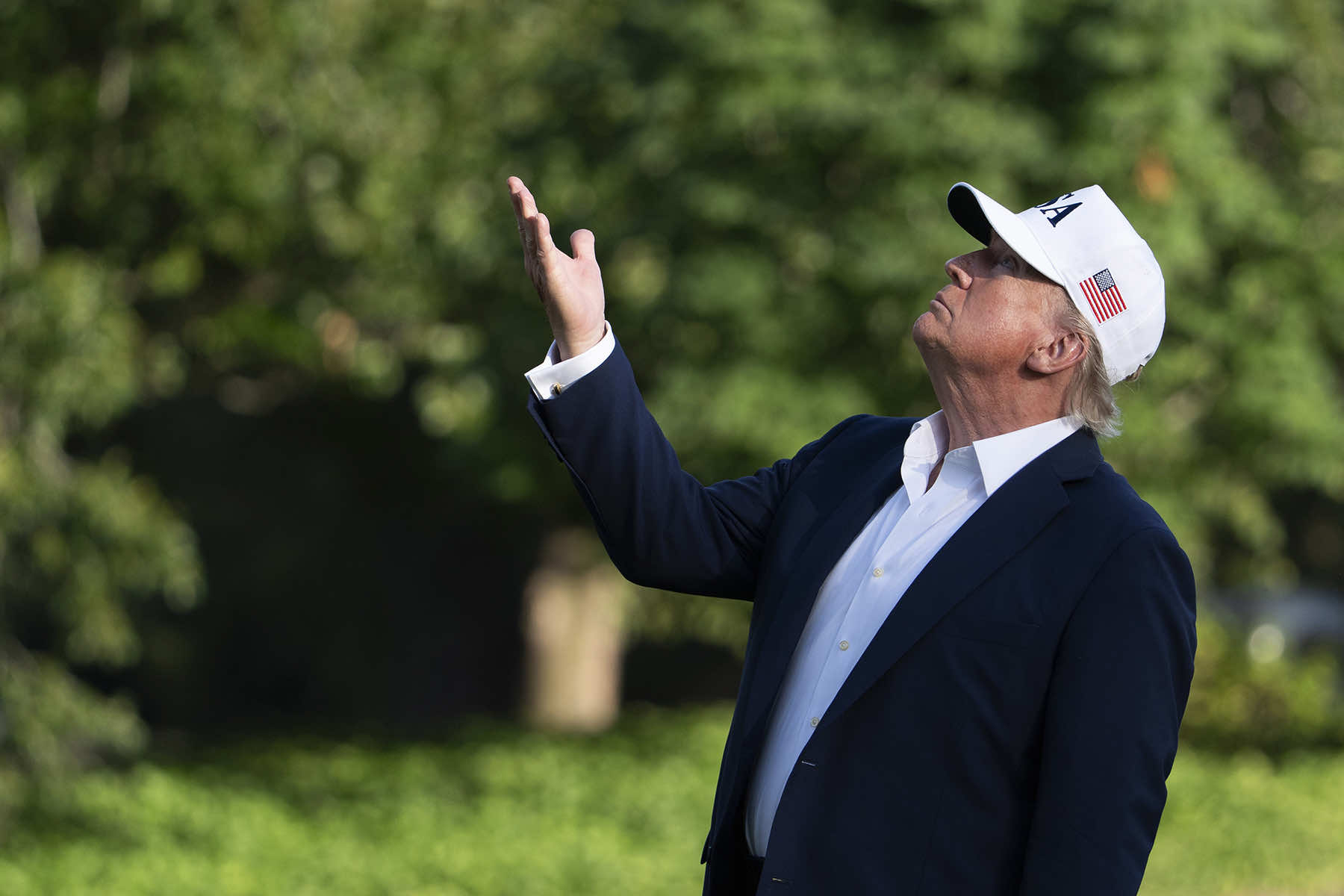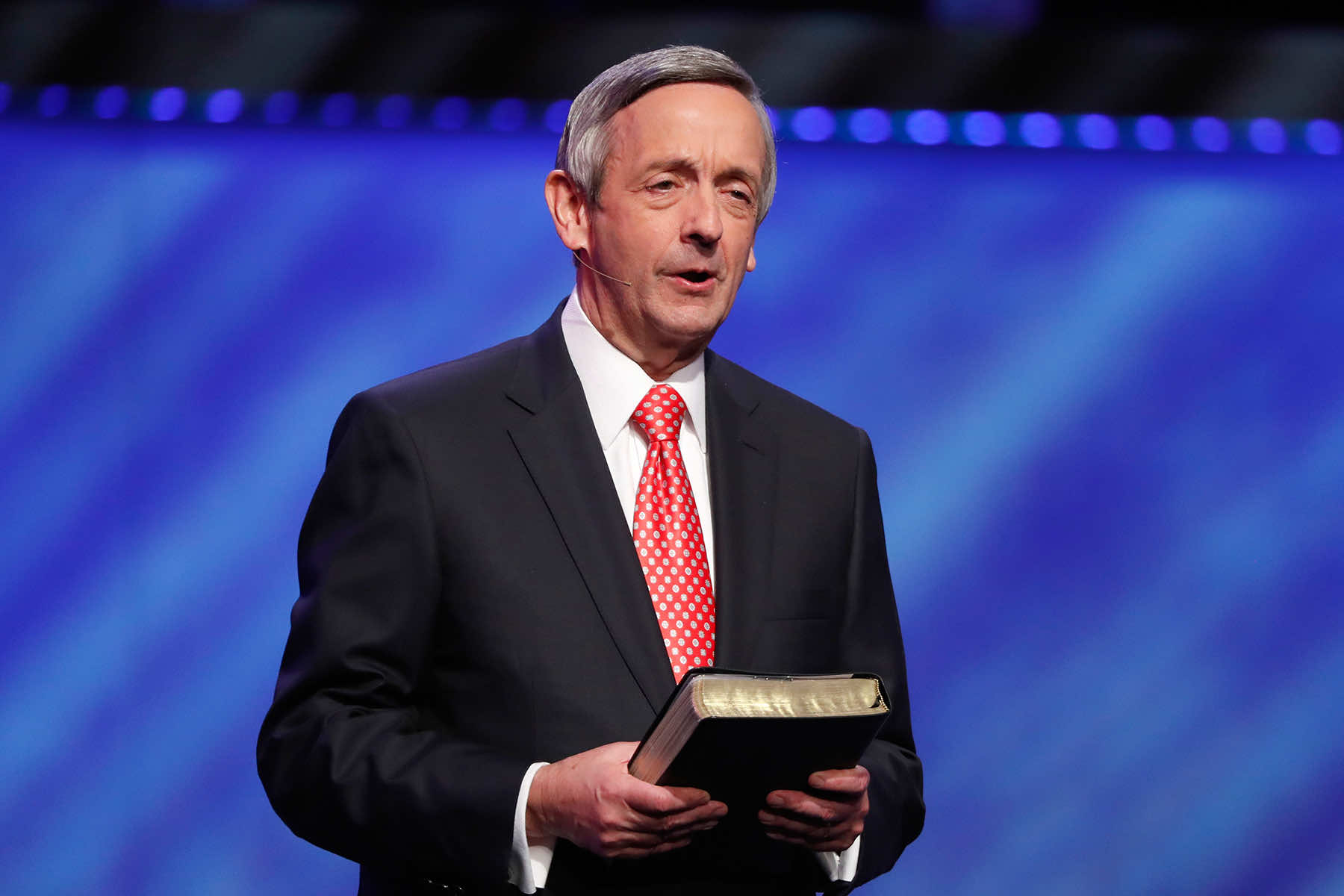
The Internal Revenue Service, once a bulwark against the corrosion of church-state boundaries in the United States, has become a wrecking ball against that very system.
Under a new “legal” interpretation issued under Donald Trump, the IRS has effectively gutted the Johnson Amendment, the decades-old provision that prohibited tax-exempt churches from endorsing political candidates.
The decision wasn’t passed through Congress, wasn’t debated in the open, and certainly wasn’t demanded by the American public. It was delivered quietly through a court filing. But make no mistake, it marks a seismic betrayal of the separation between church and state.
What the IRS has done is to grant political license to houses of worship while letting them keep their tax-exempt status — a luxury other politically active groups could only dream of. This move creates a grotesque loophole. Churches can now influence elections from the pulpit, collect untold sums of tax-free donations, and never have to disclose a dime of it.
Welcome to the new political arms race, where faith isn’t just part of the message. It’s the machine.
For context, the Johnson Amendment has been on the books since 1954. It bars tax-exempt nonprofits, including churches, from endorsing or opposing political candidates. The rule wasn’t just about fairness — it was about boundaries. Churches receive special privileges like no taxes, no financial transparency, and a wide berth in public policy debates.
That privilege came with a basic expectation — stay out of direct electoral politics. Now that balance has been shattered.
The IRS, in a settlement filed in federal court, declared that if a house of worship communicates with its congregation “in connection with religious services through its usual channels of communication on matters of faith,” then those statements do not violate the Johnson Amendment.
It’s a semantic dodge that effectively legalizes political endorsements from the pulpit, so long as they’re wrapped in a thin veneer of religious language. According to this logic, a Sunday sermon saying “God wants you to vote for Candidate X” is no longer a political act — it’s just spiritual guidance.
The issue isn’t about free speech. It’s about unequal rules. Political action committees, nonprofits, and unions that engage in electoral advocacy all face disclosure requirements, contribution limits, and IRS scrutiny.
Churches now get a free pass. They can say what they want, raise what they want, spend what they want — all without the accountability imposed on every other political actor.
The argument that this shift is some brave defense of free expression is a fraud. The people championing this change are not oppressed. They’re not silenced. They’re not under siege. They are megachurches with million-dollar budgets, political access, and direct lines to the Oval Office. What they wanted wasn’t freedom. It was an advantage.
The justification, of course, is that this is a restoration of rights — that pastors should be allowed to speak their minds without fearing the taxman. But this conveniently ignores a basic truth. No one is stopping a pastor from endorsing a candidate. They simply can’t do it on behalf of a tax-exempt institution.
Want to make political endorsements? Fine — but pay taxes like the rest of us. Religious leaders can speak all day long about politics as private citizens. They just shouldn’t do it from the pulpit while enjoying taxpayer-funded immunity.
This betrayal is made even worse by the historical context so often ignored in these debates. The United States was founded in large part by Christians fleeing other Christians. Like Protestants escaping the Inquisition, Catholics fleeing Anglican suppression, and dissenters seeking freedom from papal and crown interference.
The principle of church-state separation wasn’t secular dogma. It was a Christian survival tactic. Early Americans knew the dangers of merging spiritual authority with political power. They lived through the bloodshed that came from monarchs claiming divine right and churches serving as arms of government.
What Trump’s IRS has done is resurrect the very entanglement the Founders sought to prevent.
Churches now have a privileged position in the political ecosystem. It undermines elections, weakens public trust, and invites abuse. Tax-exempt status was never meant to be a license for political warfare.
It was a tradeoff. Stay out of elections, and you get financial immunity. Now, that deal is dead. Churches want it both ways, with political influence and public subsidy.
If a church wants to function as a political actor, it forfeits its tax-exempt status. No exceptions. No euphemisms. No hiding behind scripture to funnel campaign dollars or issue veiled endorsements.
A pulpit is not a super PAC. And if it acts like one, it should be taxed like one.
It is not radical to demand equal treatment under the law. In fact, it is outrageous that churches have been allowed to skate by for decades, given the massive financial and political capital they wield.
According to the most conservative estimates, American religious institutions receive tens of billions of dollars in tax subsidies annually. These are in the forms of property tax waivers, income tax exemptions, and untaxed donations, all under the pretense that they are non-political, charitable entities serving the public good. That pretense has been shattered.
What we are witnessing is the acceleration of a long-simmering campaign to turn churches into political machines. Groups like the National Religious Broadcasters, which led the lawsuit that triggered this IRS shift, are not fighting for liberty. They’re fighting for domination. They want to transform the nation’s pulpits into campaign platforms and its sanctuaries into voting blocs.
They’re not hiding it. They’re proud of it. They want churches to endorse, mobilize, fundraise, and pressure. And they want to do all of that under the protection of a tax code that was never designed for this level of entanglement. And now, thanks to the Trump regime’s IRS, they have been handed exactly what they asked for.
Don’t be fooled by the language of “free expression” or “religious liberty.” This is about raw political power. It’s about channeling tax-free dollars into electioneering. It’s about allowing pastors to act as campaign surrogates without ever having to file a finance report. It’s about laundering influence through religion, while the rest of civil society plays by the rules.
That should offend everyone, including the religious. Because churches that choose to become political agents are not just betraying tax law. They’re betraying their spiritual mission.
When the Gospel becomes a campaign slogan and the pulpit a soapbox for partisan warfare, it’s not just democracy that suffers. Faith does also. The sacred becomes transactional. Worship becomes strategy. God becomes a brand.
And once that door is open, it never shuts. There will be no stopping the next wave of endorsements, campaign rallies disguised as services, and full-blown political propaganda disguised as “religious expression.” This is not hypothetical. It is already happening.
The IRS decision did not occur in a vacuum. It happened in a country where Christian Nationalism is ascendant, where religious rhetoric is weaponized for votes, where billionaires are increasingly finding churches to be more useful and less regulated than super PACs.
It happened in an era where political identity is already eclipsing theological identity, where partisan loyalty often outweighs scripture in the minds of congregants. This ruling throws gasoline on that fire.
The state has no business regulating theology, and churches have no business influencing elections. That’s the deal. That’s the firewall. It protects both sides.
And if any church doesn’t like that — if any pastor insists on turning the sermon into a stump speech — the solution is simple: pay taxes.
Join the marketplace of political ideas as a peer, not a privileged exception. Disclose your donors. Obey campaign finance laws. Abide by the same rules that every other advocacy group is held to.
But don’t pretend to be above it all while cashing in on government subsidies. Don’t pretend your political agenda is somehow more noble because it’s preached instead of published. If you want to act like a campaign, you must be treated like one.
This country was founded on a rejection of theocracy. It was built by people fleeing religious tyranny, not to crown their own religious rulers, but to prevent any from holding the crown. The IRS, under Trump, has betrayed that legacy. The damage is done. The guardrails are gone.
The question now is, will we rebuild the wall between church and state? Or will we watch as it crumbles, brick by brick, beneath the weight of partisan pulpits and sanctified campaign slogans?
If democracy is to survive, we cannot afford to look away.
© Photo
Lee Matz















